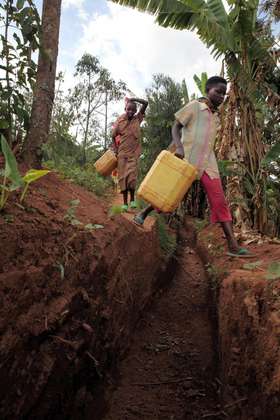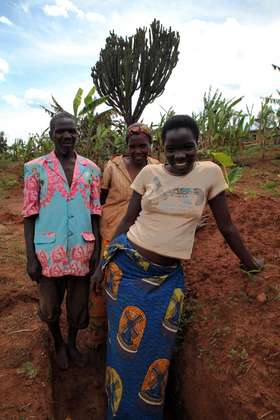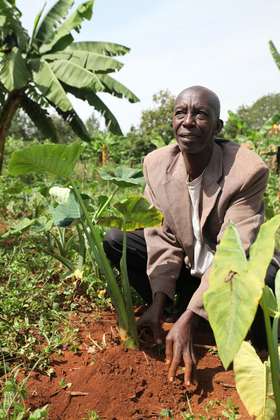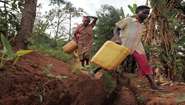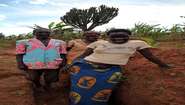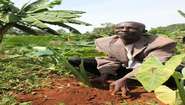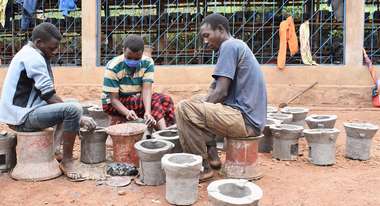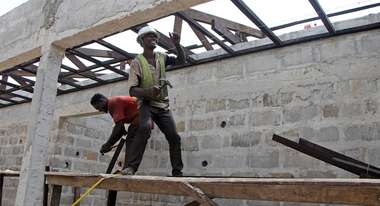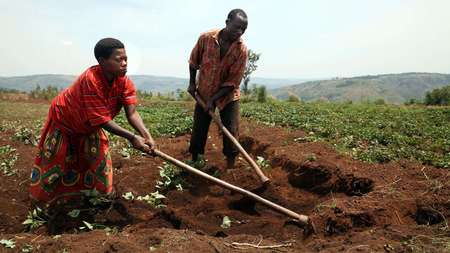
How 290,000 People Are Defying Climate Change
Residents of the province of Ngozi experience the effects of climate change on a daily basis. Mud slides, floods and droughts destroy valuable crops time and time again. The rain becomes stronger every year, simply washing the soil away.
Rainy and dry seasons are shifting, making it nearly impossible for farmers to calculate sowing time. And in Ngozi, almost everyone is a farmer. The majority of Burundi's eleven million residents are smallholders.
Population Explosion and a Land Shortage
Even without the effects of climate change, life in Ngozi would be difficult enough. People do not have enough land to feed their families. And yet, the population is growing at a rapid pace. This results in regular famines.
The Welthungerhilfe project in Ngozi provides a sustainable solution for the nutrition security of 290,000 people. Smallholders are given knowledge and resources to make them less vulnerable in the future.
How Welthungerhilfe Supports People in Burundi
- Laying erosion control ditches. Welthungerhilfe teams are working with the population to install erosion control ditches around the fields. Crop plants are being planted in the ditches. Their deep roots anchor the soil.
- Building warehouses. Welthungerhilfe is working with local labourers to construct warehouses to store valuable seeds and to protect them from dampness and animals until weather conditions permit them to be sowed.
- Contracting local workers. Welthungerhilfe employs men and women from the region at a fair wage for the construction work. This helps around 10,000 especially needy families to survive the hard, hungry months.
- Consulting for choosing seeds. Welthungerhilfe helps smallholders test which seeds grow best under the altered conditions brought about by climate change. Good results have been achieved with peanuts, runner beans, soybeans and yams.
- Educating the population. Experts educate smallholders and community representatives in order to ensure that the knowledge is not lost when the project ends. Topics include healthy nutrition, sustainable agriculture and forestry, and health and participation processes.
The measures have found success: Welthungerhilfe teams and smallholders have already laid a total of 900 km of erosion control ditches. This number is continually rising. People are adapting agricultural processes to the new conditions, allowing food to be stockpiled for the first time. Collaboration in cooperatives and user committees strengthens local communities and families as well.




